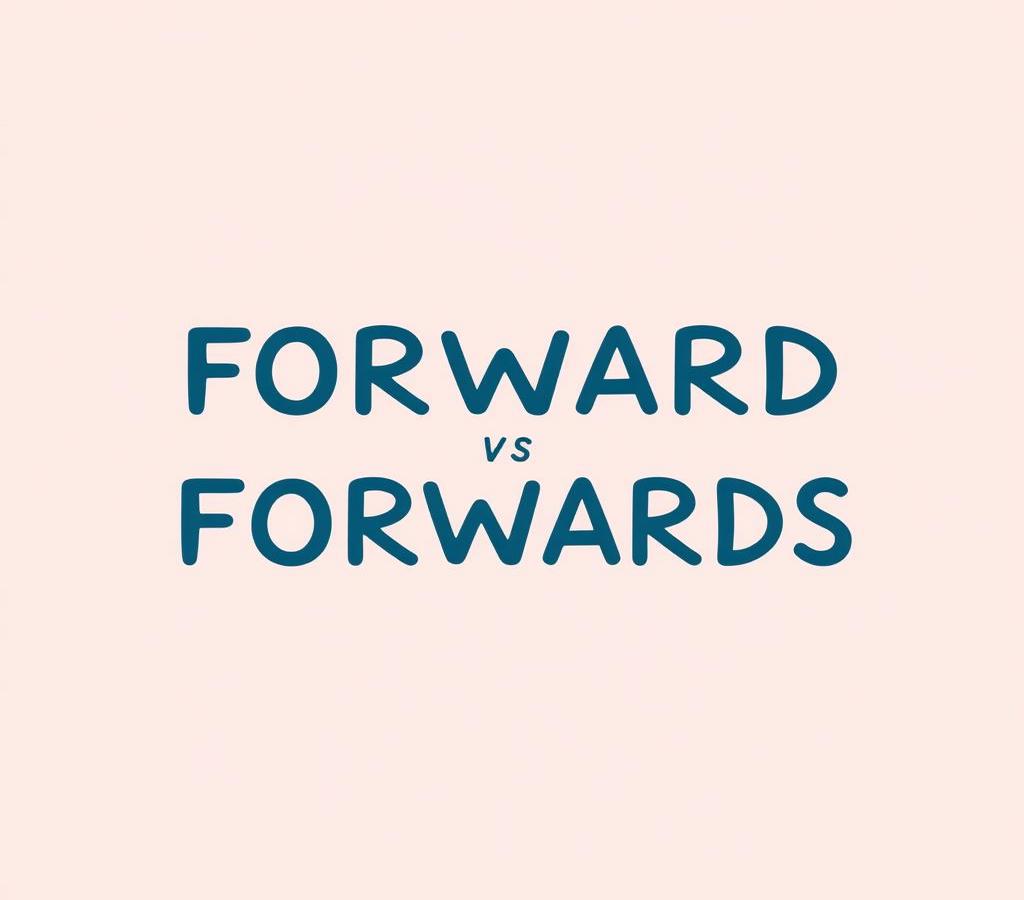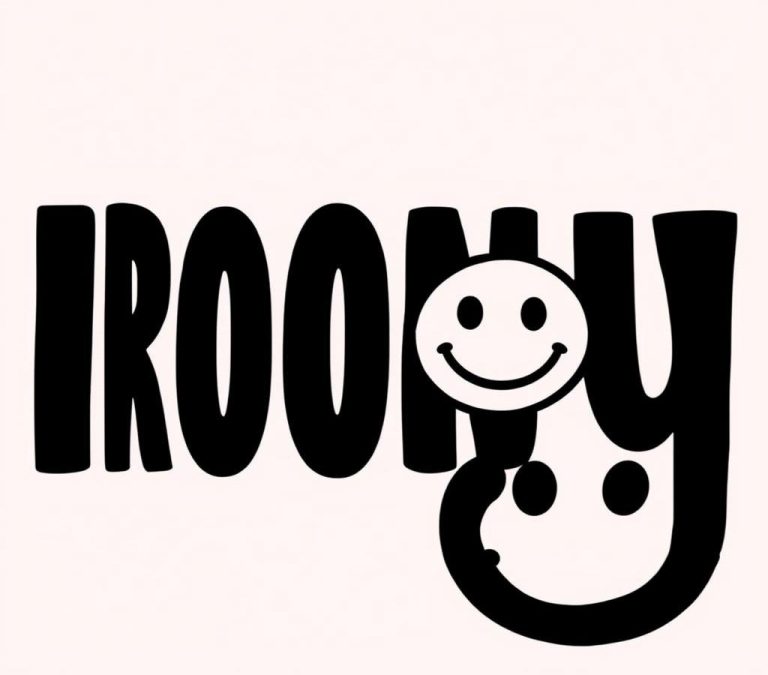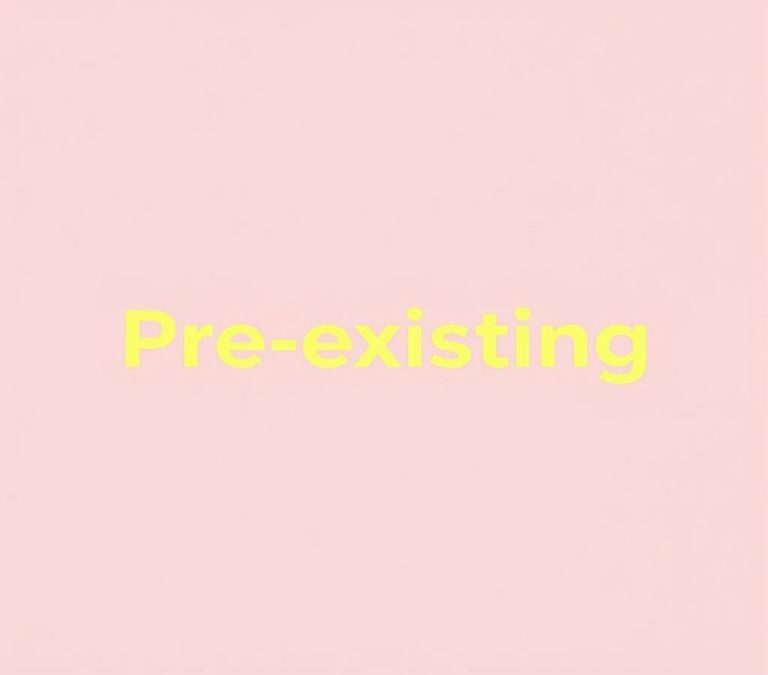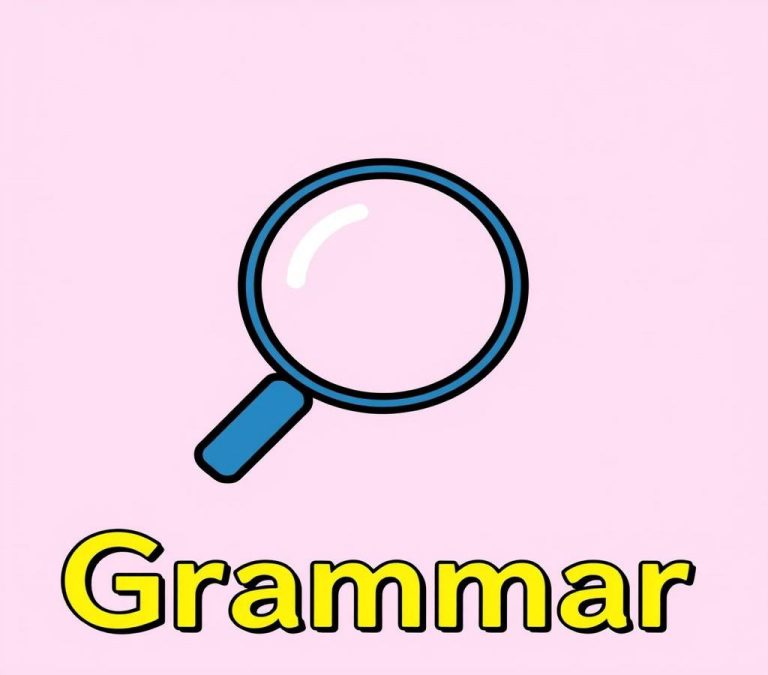Forward vs Forwards: Grammar Usage Guide
The words “forward” and “forwards” often cause confusion in writing. Both seem to mean the same thing, but their usage can differ depending on the context. This article will help clarify the differences and teach you when to use “forward” and “forwards.” Understanding these distinctions can improve your writing and communication skills.
Quick Answer
Use “forward” as an adjective or verb, and “forwards” as an adverb. In general, if you’re talking about moving or directing something ahead, use “forward”. If you’re describing an action that is moving ahead in space or time, use “forwards”. For example: “I’m going to forward your email” (verb), “I’m looking forward to the party” (adjective), or “The team moved forwards on the field” (adverb).
Why There is Confusion
Understanding the difference between “forward” and “forwards” can be tricky for many English speakers and learners. Both words seem to imply motion towards a direction ahead or in the front, and they are often used interchangeably. However, there are subtle differences that can impact the clarity of your writing or speech. So, why is there so much confusion? The distinction primarily arises from their usage in different contexts and forms of speech. Additionally, regional preferences also play a role, with British and American English sometimes favoring different versions of the word.
What Does “Forward” Mean?
The word “forward” is versatile and can function as an adverb, adjective, or verb. Primarily, when used as an adverb, “forward” indicates movement towards a front position or advanced state. For example:
“She moved forward to get a better view of the stage.”
As an adjective, “forward” describes something that is situated ahead or towards the front. For example:
“They sat in the forward section of the plane.”
When used as a verb, “forward” means to send something onward to a new destination. For example:
“I will forward the email to you.”
What Does “Forwards” Mean?
“Forwards,” on the other hand, is primarily used as an adverb to indicate direction towards the front. It is more commonly used in British English, whereas “forward” is more prevalent in American English. For example:
“She moved forwards to get a better view of the stage.”
While “forwards” essentially carries the same meaning as “forward” when used as an adverb, its usage can sometimes sound more colloquial or natural in certain dialects of English.
Differences Between “Forward” and “Forwards”
Differences in Parts of Speech
One crucial difference between “forward” and “forwards” lies in their parts of speech. While “forward” can serve as an adverb, adjective, or verb, “forwards” is primarily used as an adverb. This distinction limits how “forwards” can be employed in sentences.
Differences in Verb Forms
When used as a verb, the word “forward” takes on a distinct meaning that “forwards” does not. For example:
- “Can you forward the package to my new address?”
- “I will forward this message immediately.”
“Forwards” cannot be used in these sentences as it lacks the verb form. Therefore, if you’re talking about sending something onward, “forward” is the only correct choice.
Differences in Idiomatic Expressions
Many idiomatic expressions and phrases in English exclusively use “forward,” not “forwards.” Here are a few examples:
- “Looking forward to” – I am looking forward to the weekend.
- “Fast forward” – Let’s fast forward through the boring part.
- “Put your best foot forward” – She decided to put her best foot forward at the interview.
In these instances, replacing “forward” with “forwards” would make the phrases grammatically incorrect and confusing.
Synonyms for “Forward” and “Forwards”
Given the overlapping meanings and differences between “forward” and “forwards,” it’s helpful to understand the synonyms that can be used interchangeably based on context.
Synonyms for “Forward”
Depending on its role in the sentence (adverb, adjective, or verb), “forward” can be replaced by several other words:
- Adverb: ahead, onward, further
- Adjective: front, leading, advanced
- Verb: send, transmit, dispatch
Examples:
Adverb: “Let’s move forward with the plan.” (ahead, onward)
Adjective: “She received a forward position in the company.” (leading, advanced)
Verb: “Please forward this document to John.” (send, transmit)
Synonyms for “Forwards”
As solely an adverb, “forwards” has fewer synonym options. However, some viable choices include:
- ahead
- onward
- forth
- further
Examples:
“He leaned forwards to hear better.” (ahead, onward)
“The soldiers marched forwards into enemy territory.” (forth)
Examples of Usage: “Forward” vs “Forwards”
Now that we’ve dived into the meanings and subtle differences, let’s look at some practical examples that highlight the distinctions between “forward” and “forwards.”
- Correct: “Please step forward if you have any questions.”
Incorrect: “Please step forwards if you have any questions.” - Correct: “The meeting has been moved forward by an hour.”
Incorrect: “The meeting has been moved forwards by an hour.” - Correct: “The car moved forwards slowly.”
Incorrect: “The car moved forward slowly.” (British English preference) - Correct: “She is looking forward to her holiday.”
Incorrect: “She is looking forwards to her holiday.” - Correct: “I will forward the information to the relevant department.”
Incorrect: “I will forwards the information to the relevant department.”
Conclusion: Choosing the Right Word
The decision between using “forward” and “forwards” boils down to context, part of speech, and sometimes regional preferences. “Forward” is more versatile as it can be used as an adverb, adjective, or verb, making it suitable for a variety of contexts. “Forwards,” however, is primarily used as an adverb and is more common in British English. Understanding these subtle differences can help you make more informed choices in your writing or speech, ensuring clarity and correctness. Always consider the specific role the word is playing in your sentence, and whether you’re adhering to regional language norms, especially if you are writing for an international audience. In most cases, “forward” will be the safer and more universally accepted choice, but “forwards” may be preferred in more colloquial British contexts.







